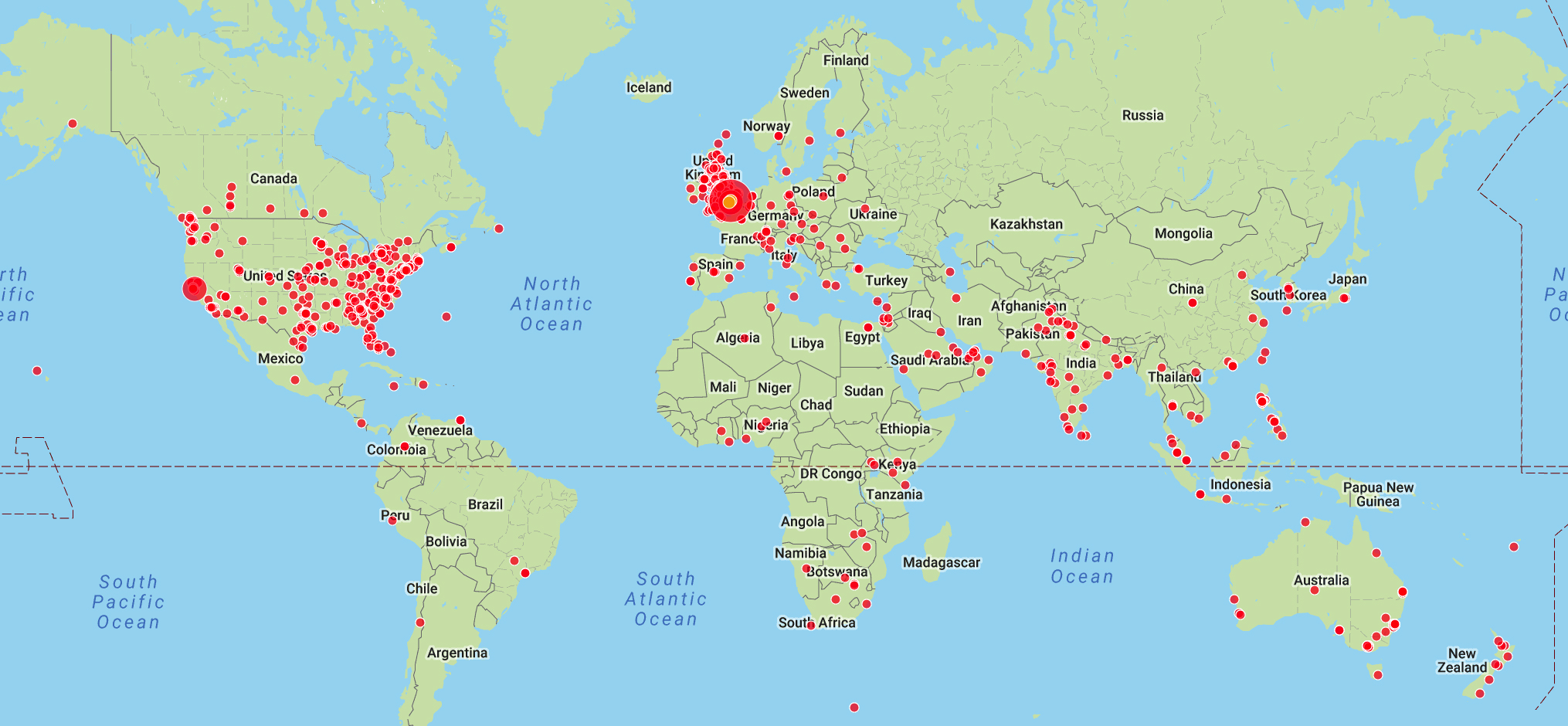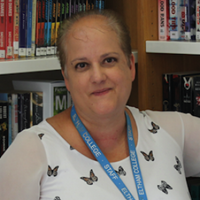Issue 105
Term 2 2018
Making the library the true heart of the school
Caroline Roche, founder of the Heart of the School website, writes about the need to advocate for and share stories from school libraries — and what makes them the heart of the school.
That the library is the ‘heart of the school’ is a commonly accepted phrase nowadays, certainly in the United Kingdom. You see it in ads for a new librarian, you see it in tweets, you see it in newspaper articles, and it is even the title of the All Party Parliamentary Group white paper on school libraries: ‘The beating heart of the school’. But where does this phrase that is so ubiquitous now come from? Well, actually, I know. It is a phrase that fills me with pride, because it is the name of the website I set up seven years ago to celebrate the work of school librarians. You can visit the Heart of the School website and follow the Twitter feed @HeartOTSchool. There is also a Facebook page.
How did I come to set up Heart in the first place? I was part of a program called Lead Practitioners, which chose the top people from academic subjects to help raise standards in schools. At the end of our Lead Practitioner year, everyone was required to produce a resource to help support others. I decided I would make a website that demonstrated best practice. Coinciding with this, the first savage cuts to public libraries were proposed, and a campaigning group called Voices for the Library (VFTL) set up a website and a Twitter feed to protest the cuts. Many school libraries were also closing, and I contacted VFTL to see if they would include us in their campaigning. They told me that they really didn’t know enough about school libraries, but that I was welcome to set up my own website. Although I didn’t feel that I could campaign for school libraries — there is no central setup, each school is individually run — I did feel that I could show people what they would be missing without a school library and librarian, and highlight our excellence.
I contacted several well-established school librarians I knew and asked them to feed into a Google Doc about what the website could/should contain. This formed the bones of the website. My thanks go to Anne Robinson, who built the structure of Heart while I was still learning about websites, as well as Laura Taylor, Annike Dase, Bev Humphrey, and others who gave their time, wrote some pieces, and helped start the site off.
What quickly became apparent once the site was going — and something that I hadn’t expected — was that it would be read internationally. Heart was intended for UK audiences, and I didn’t expect too many people to read it (though I hoped they would). However, if you look at the visitor map on the website, you will see that it is read all over the world.

In order to keep Heart going, I am constantly advocating on the School Librarians Network, a supportive Yahoo group that was set up by Elizabeth Bentley and reaches over 1,000 librarians. Whenever someone mentions a good thing they are doing in their school I jump in and ask them if I can share it on Heart. I need to constantly advocate, because I find that a lot of people are doing wonderful things that they don’t think are good enough to share with everyone! I do have regular contributors, but I try not to feature any one school or event too much, so that it doesn’t become exclusive to a small group of schools, and remains a resource for everyone. I regularly tell people that Heart is not mine, but ours — I just post their stories on there for them. Until fairly recently, there hasn’t been a question about why a school should have a library. Libraries were seen as good for encouraging reading, education and general cultural enrichment.
When I started as a librarian more than 20 years ago, I certainly never used to have to justify the use of the library in terms of footfall, books borrowed or anything of that sort. I didn’t have to convert part of my room into a makerspace or have a games club. All I had to do was have a great collection of books, both fiction and non-fiction, and promote reading for pleasure and enrichment. But, in these tough financial times, everyone is now required to prove that they are worth keeping, and this can be a particular problem for school librarians.
Teachers can justify their existence by improving grades and outcomes, but how can librarians prove that they add value and cultural capital? Now, school librarians run courses on how to use statistics, how to gather evidence and in what form, and how to present these to senior management to save our jobs. And, even with all of these tools to hand, school librarians increasingly find that nothing counts when they face the hard financial reality of losing a teacher or losing the library. ‘Value adding’ and ‘cultural capital’ no longer matter when placed against statistics that head teachers need to show to ensure that their school stays out of ‘special measures’. Not that this is a problem confined to the UK — this Gradgrind privileging of facts prevails elsewhere. It reflects Charles Dickens's Mr Gradgrind in Hard Times: ‘Teach these boys and girls nothing but Facts. Facts alone are wanted in life. Plant nothing else and root out everything else … nothing else will be of any service to them’.
So, in these times when only facts seem to matter, how do we ensure that a school has such an emotional connection to the library that losing it would be like tearing the heart out of a school, raising an outcry among staff, students and parents? I believe that, just as the heart is the nerve centre of the body, so should the library be. The skilled librarian (and there has to be one, otherwise you don’t have a library — just a roomful of books) needs to be a vital part of every department’s teaching and learning. Whether or not you teach formal library lessons in your room — which I don’t — you need to be involved.
There are many ways of entwining the library in the school, so that losing it becomes unthinkable. These include making departmental-wide reading lists and ensuring the latest resources are stocked for all subjects; providing online resources; hosting debates, clubs and makerspaces; helping university candidates with careers resources and interviews; hosting language days and stocking foreign language resources and magazines; helping with the Extended Project Qualification or the International Baccalaureate; teaching information literacy and fact checking; and educating about plagiarism. Elizabeth Hutchinson’s guest post on Leon’s library blog will give you lots of other ideas to increase collaboration in your own school.
School librarians ensure that resources are provided for LGBTQI students and those who have been bereaved, face difficult life choices, and who may have a host of medical conditions from ADHD to cancer. A properly trained school librarian is discreet and will know which resources to buy and who to recommend them to. This is an often unseen, but vitally important, function of the library. All of this counts for nothing in a Gradgrind world, but means everything to a child.
You can also guarantee that the Special Education Needs Coordinator knows the vital role that school libraries play in helping children with additional needs, particularly the vulnerable, and those on the autism spectrum. A read of Barbara Band’s recent guest blog will help leadership understand the key role that librarians play in this area.
So, keep your library right at the heart of the school. It is easy just to focus on the books, the reading clubs, the children who love reading and encouraging those who don’t. That, after all, is our primary function and what we do most of the day. But, if we only focus on this, we may find that we become marginalised. If the library closes, it will be desperately missed by the children, but not by the departments and the school in general. You’ll be like a foot that can be amputated — the school can limp on without you. You need to be the heart, pumping blood through everything, so that losing you is unthinkable. Your value needs to be perceived by everyone — not in the value of your statistics, but in the life you bring to the school.
